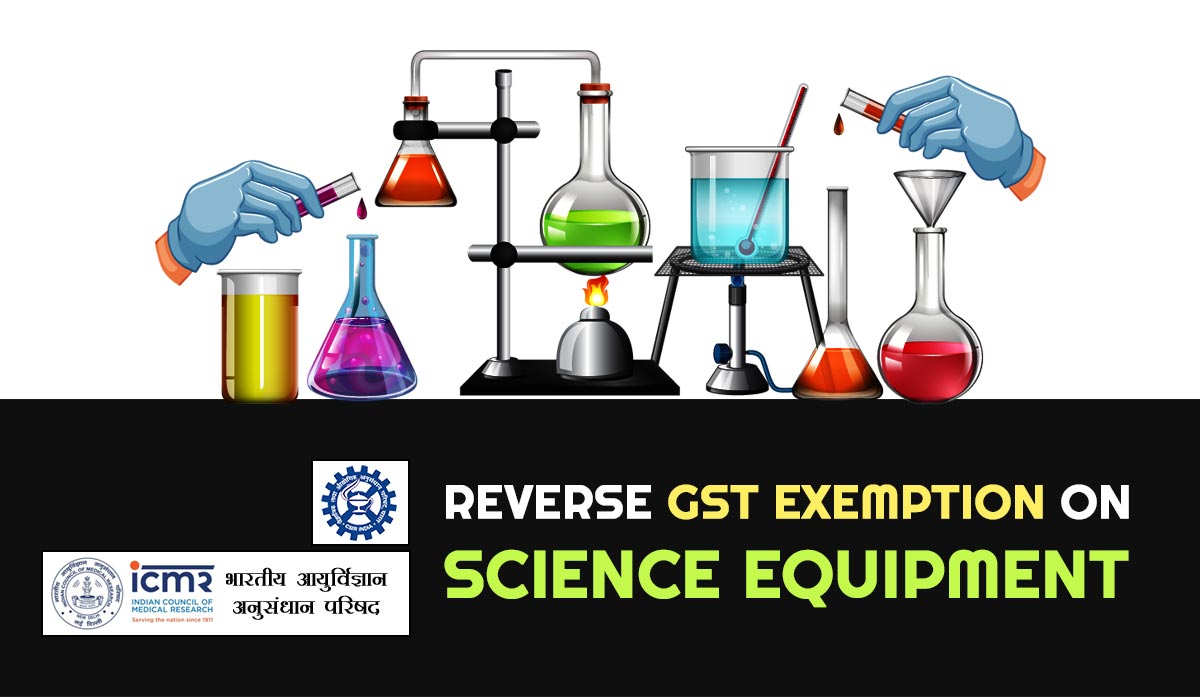
There are much more things that have been made by scientists and from their work, particularly regarding the covid pandemic condition. However various scientists are being thought about the future of their research post to the announcement of the government for the amendment in the GST rate of 5% on the technical testing equipment related to science purchased by public-funded research institutes.
18% GST rate would be applied according to rate rationalization which will come into force from 18th July on all the scientific equipment. “In effect, this means that our grants have gone down by 13 per cent,” articulated a scientist in the institute of the government.
The scientist would be afraid of the order since the same will affect the cost of all the equipment for the disciplines, ranging from basics like micropipettes and chemicals to sophisticated types of machinery such as microtomes (used to cut biological samples into thin segments for microscopic examination) and chromatographs (which separate and identify different chemical compounds).
Dr Amit Tuli, a principal scientist at the CSIR Institute of Microbial Technology, asked for funding agencies to ask the Prime Minister to withdraw the same law, while not doing could affect science.
In the identical line, he indeed specified the vendors are already spending the emails to change the buying of the orders to show the amended rate.
In Nov 2017, the government has made a concessional GST rate on the scientific as well as technical equipment in public-funded research institutes and laboratories.
Complying the GST council 47th meet, chaired by FM Nirmala Sitharaman dated 28 June in the current year a suggestion would be incurred to rationalize the exemptions. The Central Board of Indirect Taxes and Customs (CBIC) has removed the same exemption dated 13th July and inserted the new rate which will come into force from 18th July.
The finance ministry specified that “The rationalisation of GST on scientific equipment was part of the recommendations of the Bommai Committee report which was accepted by the GST Council in toto.”
Karnataka Chief Minister Basavaraj Bommai leads the Group of Ministers on GST which is mandated to see for the rectifying of inversions and pruning exemptions on specific things.
The Rise in the Demand for Grants: Various scientists are concerned about the revision of GST, saying that already the field of scientific research is underfunded in India.
A former official of the Indian Council of Medical Research (ICMR) mentioned that even covid is not able to revamp the status quo. “Medical research needs more money, GST or no GST. That is my view,” he counted.
The removal of the concessional GST rate towards the research equipment was a blow to the already severely beneath the funded research ecosystem in the same country tweeted by Arindam Ghosh, a researcher at the Indian Institute of Science.
Specifying the limited resources that the scientists performed to do research, Arnab Mukhopadhyay a scientist at the National Institute of Immunology in Delhi asked for a respective rise in the grants to compensate for the surged price.
Amitabha Bandyopadhyay, professor, of the Department of Biological Sciences & Bioengineering at IIT Kanpur, tweeted, that the GST amendment renders a crippling effect on the cases in which the allotment would be sanctioned but the equipment would not be filed for. Order must be allotted to fund the agencies to grant 13% value specified as top up.
Read Also: GST Impact on Healthcare Industry in India
The procedure of an upward amendment of the grants as of the tax rate revision is not common and does not seems to rise. “According to the rules, a PhD candidate will not get her fellowship [money] after five years. If the holdup over equipment buying for a particular project stops working even for a few months, it is a very big issue for these scholars,” articulated the senior scientist.
The members of the scientific community think that the case would be blown out of proportion.
The director of the ICMR institute who speaks on anonymity mentioned that he shall not think about the latest GST rates that will affect the research in the subsequent times.
“Most of our research equipment is bought on government money, so this amounts to taking money from one pocket and putting it in another. There are some projects that get money from funding agencies such as WHO etc, and those agencies will have to bear the extra burden, but I do not think research will be impacted significantly,” he expressed.
Indian Grants have no Overheads: At the premier research institute, a scientist speaks in anonymity that the GST amendments comply with a series of decisions that might influence the funds’ availability for research in India.
“If you look at Ivy League institutes, there is a provision for ‘overheads’ in all grants that go to the institute for supporting the researcher’s work. In some cases it is as much as 100 per cent,” he stated.
There is a different case in India. “Here, our grants do not come with overheads as such, but there is a fixed ad-hoc amount institutes get, which is between Rs 3 lakh and 5 lakh — it is hardly enough. Earlier the interest earned on a grant was the institute’s overhead, but that too now has to be refunded,” the scientist articulated.
He specified that the institutes which are being funded by the public funds have no strong arms to handle the surged expenditure that the amendment in the GST rate will arrive.









